THOMAS DUNNE BOOKS.
An imprint of St. Martins Press.
UTTER INCOMPETENTS. Copyright 2007 by Thomas Oliphant. All rights reserved. Printed in the United States of America. No part of this book may be used or re-produced in any manner whatsoever without written permission except in the case of brief quotations embodied in critical articles or reviews. For information, address St. Martins Press, 175 Fifth Avenue, New York, N.Y. 10010.
Oliphant, Thomas.
Oliphant.1st ed.
1. United StatesPolitics and government2001- 2. United StatesForeign relations2001- 3. Bush, George W. (George Walker), 1946Political and social views. 4. Bush, George W. (George Walker), 1946Influence. 5. Political cultureUnited States. I. Title. II. Title: Utter incompetence.
ACKNOWLEDGMENTS
IN THE SPRING of 2005, my publisher, Tom Dunne, climbed aboard the shuttle to Washington with an idea in his expansive brain that would not become chic for at least another half-yearthat the troubles then besetting President Bush in the first few months of his second term were much more than mere troubles. He thought the wheels were coming off this machine, and for reasons that went well beyond the ongoing, seemingly endless wars in Iraq and Afghanistan.
On his way for a chat with me before bringing out a memoir that summer of my New York childhood and my first love, the Brooklyn Dodgers, Mr. Dunne opened his laptop on the plane and let rip a most delightful screed, the main point of which was that there was no important topic one could list of which President Bush was not making a colossal messdomestic as well as foreign. In another notion that would not become chic for at least a half-year, he used an adjective then not generally in use in descriptions of the Bush administrationincompetent.
His memo was both jarring and entertaining. But we still had an-other project to launch, and so I put the manifesto aside. Tom Dunne
did not put the idea aside, pressing me to tell him what I thought and what people were saying as Bushs approval numbers continued their unusually steady slide. Asking around, I decided he was essentially correct, that there had not been anything remotely like it for years, and that the situation was continuing to deteriorate.
Then Hurricane Katrina changed the equation dramatically. In deciding to proceed with this project, we aimed at a hole in the work that had been done on the Bush administrations first five years. There was no dearth of examinations in minute detail of the unfolding catastrophe in post-invasion Iraq, and there was much in the way of traditional, insider-focused accounts of internal administration politics. What was missing was a search for explanations of how one administration could goof with such astonishing regularity, whether the issue was natural disasters, wars, taxes, energy, health care, or Social Securitya search for common themes and habits that could help a reader understand the gap between the economy Bush portrayed politically and the economy Americans actually lived in, not just between blind hopes and ugly reality in Baghdad.
It seemed to me this required deduction more than induction, as well as analysis of the voluminous public record (official sources from commission reports to texts of legislation and proposals, and statistical compilations of impacts on the public, where available) to hunt for patterns. Gradually a picture emerged strongly suggesting that this fish rotted from the head and that the administration handled taxes in much the same way it plotted strategy in the Sunni Triangle.
Through it all, my experience in politics and journalism had me convinced that no president could absorb all these self-inflicted wounds without at some pointgoing into the 2006 congressional elections or at least coming out of themrealizing something was fundamentally wrong and changing course. So the biggest surprise of all was how little, if at all, Bush has changed, not after the Democrats won both houses of Congress, not when the U.S. death toll in Iraq went above 3,500. The downward slide in the administrations
sixth and seventh years was not noticeably different from the events of the first five.
It is presumptuous to choose sixteen topics for analysis. Others could easily pick different ones. Im convinced, however, that the ones here provide sufficient breadth to show the pattern of emerging pitfalls ignored, of the hubris and arrogance that prevented responses to changing circumstances, of the excessive importance of short-term politics, ideology, and special interest cronyism in influencing decisions, and of the stubbornness that blocked obvious course-changing options. I prefer the left-of-center perspective in politics, but the Bush administrations record shows that behavior, not beliefs, was what counted.
Intellectually, I am indebted to the early dissenters on the right who illustrate this key point: to the neoconservative foreign policy expert Francis Fukuyama, who lectured on the dangers of over-reaching abroad in 2005 and published America at the Crossroads the following year; and to passionate conservative Bruce Bartlett, whose dissent from Bush domestic policy, especially on government spending, taxes, and trade, titled Impostor, was published in 2006. Many conservatives have since joined their chorus.
For Tom Dunnes inspiration and Job-like patience as I wrestled with all this, there is no adequate expression of gratitude. At St. Martins, this was my second time around the track with a brilliant woman whose patience, insight, and nudging leadership were as ever invaluablemy editor, Kathleen Gilligan. And at home, my work was once again aided immeasurably by the loving, stern, get-to-the-point perusal of my wife, Susan Spencer, of CBS News.
But all the goofs are mine alone. I recommend this attitude to President Bush.
UTTER
INCOMPETENTS
JUSTICE
The scandal unfolding around the firing of eight U.S. attorneys compels the conclusion that the Bush administration has rewarded loyalty above all else. A destructive pattern of partisan political actions of the Justice Department started long before this incident, however, as those of us who worked in its civil rights division can attest....
Joseph D. Rich, chief of the voting rights section of the Justice
Departments civil rights division, 1999-2005, Los angeles Times
Op-Ed, March 29, 2007
JUST DAYS INTO George W. Bushs second term as president, his assistant for politics, policy, and nearly everything elseKarl Roveasked a direct question of his White House associates, recorded in a memo by the deputy White House counsel, David Leitch.
Roves query involved the operating engineers of every presidents administration of justice: the ninety-three United States attorneys. After four years in office, Rove wanted to know what was next, or as Leitch summarized it: How we planned to proceed regarding US Attorneys, whether we were going to allow all to stay, request resignations from all and accept only some of them, or selectively replace them, etc.

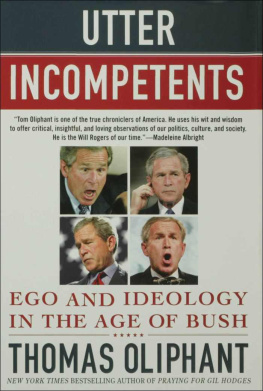


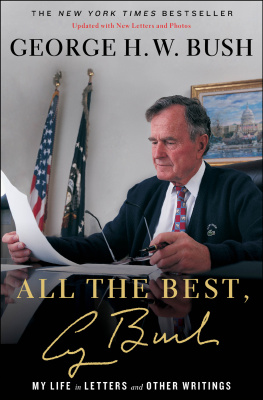
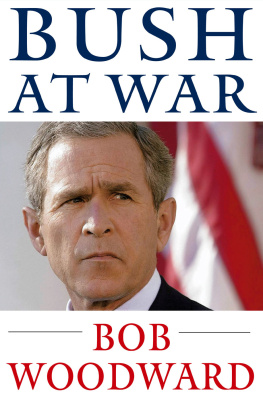
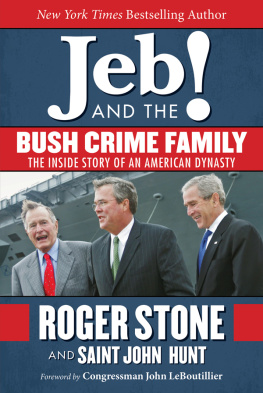
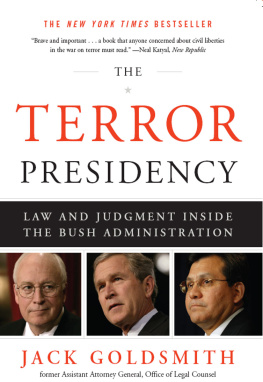
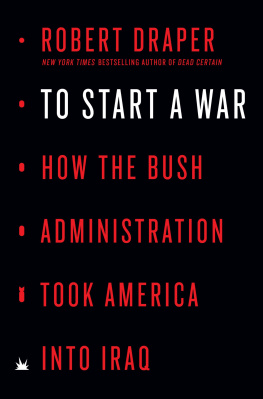
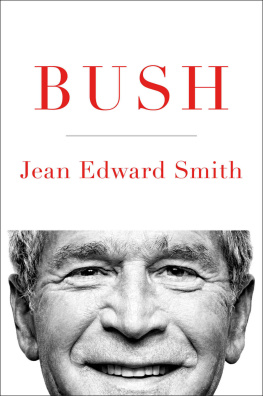
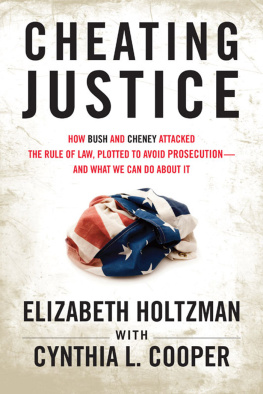

 NEW YORK
NEW YORK